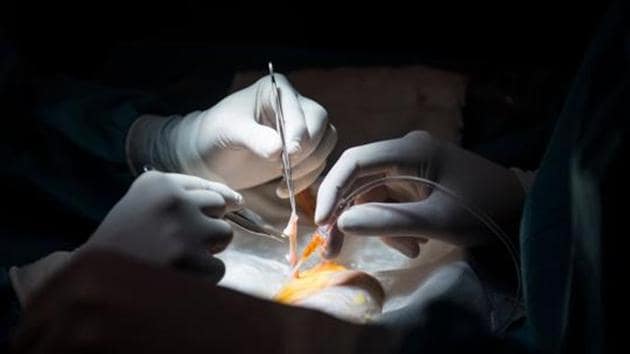Fewer doctors opting to become surgeons, shows health ministry data
In the 2018-19 academic year, 189 of the 2,029 seats in the super-speciality courses had no takers, according to data on candidates who cleared the National Eligibility-cum-Entrance Test (NEET) for admission to such disciplines.
Fewer doctors are training to become surgeons these days and non-surgical courses such as cardiology, endocrinology, urology, nephrology and medical oncology have emerged as the big draw for young health professionals, according to Union health ministry data on admissions to so-called super-speciality courses.

In the 2018-19 academic year, 189 of the 2,029 seats in the superspeciality courses had no takers, according to data on candidates who cleared the National Eligibility-cum-Entrance Test (NEET) for admission to such disciplines.
Of the 189 unfilled seats, 168 belonged to the four main surgical disciplines of cardiothoracic and vascular surgery (CTVS), paediatric surgery, plastic surgery and neurosurgery. In the 2017-18 academic session, 290 of the 571 seats that had no takers belonged to these four surgical disciplines.
The trend is a largely marketdriven phenomenon, said Dr NN Mathur, principal of Vardhman Mahavir Medical College, which is attached to Safdarjung Hospital in New Delhi. An increase in the incidence of non-communicable diseases such as diabetes, chronic kidney disease and cancers has caused rising demand for endocrinologists, nephrologists and medical oncologists.
“A decade ago, CTVS was chosen by doctors with high ranks in the qualifying exam, but over the past few years, those opting for it are the lowest rankers,” said Dr Mathur. “Open heart surgeries have been replaced with stents to open vessel blockages. There’s more demand for interventionists as there are more patients there. Same goes for other disciplines. This trend is totally market driven,” added Dr Mathur. The health ministry is now considering restricting the number of seats available in surgical super-speciality courses in medical colleges. “There is a shortage of medical seats in the country, so there is no point in increasing seats in those disciplines that doctors are not interested in pursuing,” said a health ministry official, asking not to be named because he is not authorised to speak to media.
In India, 137 medical colleges offer 2,029 seats in 41 super-speciality courses. According to government data, around 15,000 candidates took the entrance test in 2018-19, of which 10,143 qualified on a 50 percentile basis.
“It is being considered to restrict letters of permission [LOPs, which are issued to increase medical seats] to medical colleges in the surgical disciplines,” the official cited above said.

Faculty members at medical colleges agree that most surgical disciplines are no longer the first preference of candidates applying for super-speciality courses.
Dr VK Bahl, dean of the All India Institute of Medical Sciences (AIIMS), New Delhi, attributes the shift to advances in treatment modalities.
“This trend is seen not just in India, but also in developed countries. Another reason for not choosing surgical disciplines in the West, and which will soon catch up in India too, is that threat of being dragged into medico-legal cases, which is higher for surgeons,” said Dr Bahl.
Inadequate infrastructure is cited as another reason for doctors moving away from surgical disciplines.
“Even in Delhi, which is the national capital, only a handful of its 40-plus government hospitals have the infrastructure needed for complex surgeries. There weren’t enough operation theatres and most doctors end up referring patients [to other hospitals] which can get really frustrating for a surgeon,” says Dr Pankaj Solanki, former president, Federation of Resident Doctors’ Association, who trained as a general surgeon.
“As a result, there’s a general shift towards non-surgical branches. I also think I would have been better off specialising in, say, dermatology or radiology, rather than general surgery,” added Solanki.
Get Current Updates on India News, Election 2024 News Live, Election 2024 along with Latest News and Top Headlines from India and around the world.




